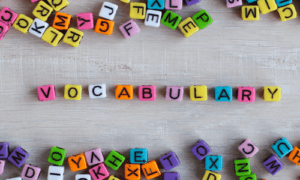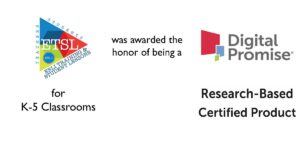What is Sub-Literacy?
Sub = below. Literacy = the ability to read and write. Sub-literacy is a problem hiding in plain sight.
Someone could be illiterate (not able to read or spell at the most basic level) or ‘functionally illiterate’ (reading at the 5th grade level or below). 21% of adults can be categorized as functionally illiterate.
A PROBLEM HIDING IN PLAIN SIGHT
Sub-literacy encompasses those who are functionally illiterate or illiterate as well as children and adults who can read, write, or spell but are doing so below their potential. This ranges from those who struggle with all reading and writing to those who rarely read for pleasure and avoid spelling and writing. It also includes doctors, lawyers, teachers, and other educated individuals who read slowly, have to re-read to comprehend, or misspell many words.
My ‘advantaged’ child was sub-literate; she could ‘pretend read’ by memorizing, but couldn’t read unfamiliar text. She could spell well on spelling tests, but couldn’t spell correctly in her writing. Children and adults of every race, education level, and socio-economic status can be sub-literate.
Who in your life is sub-literate and how would you know?
Every one of us has people in our lives who are sub-literate. They are often experts at hiding it. People who struggle mildly to significantly with reading, writing, or spelling feel some degree of shame, embarrassment, and/or anxiety about their difficulties. Most of them think that they are lacking, inept, dumb, disabled, or broken.
How would you know if a child or adult in your life is sub-literate? Here are some common indicators.
Adult:
- Doesn’t read for pleasure
- Avoids reading out loud
- Misreads game directions or avoids games requiring reading
- Misreads menu items or birthday cards
- Asks someone to read something because they ‘forgot their glasses’
- Hesitant to read to a child
- Becomes belligerent if asked to read something
- Says they’re ‘not a great speller’
- Avoids writing checks, grocery lists, or cards
Child:
- Only wants to read books they have read before
- Says they don’t like to read
- Misreads words when reading out loud to you
- Guesses words instead of saying the sounds as they move through an unfamiliar word
- Looks at the picture to figure out the words
- Picks a book from the library with a fancy cover but never reads it
- Looks at your face to see if they are correct when reading
- Gets a stomach ache/headache/has to go to the bathroom when asked to read or write
- Misbehaves when asked to read or write
- Spells accurately on a spelling test but misspells significantly in writing
- Will share a great, detailed story then write just one sentence
- Uses simpler vocabulary when writing than when speaking to avoid spelling the words
- Throws the book when asked to read an unfamiliar book (my daughter did this)
- Cries about homework, going to school, reading, or writing
In the video above, I share specific stories about both children and adults – including doctors and highly successful businessmen – whom I have taught. I also talk about insights they’ve shared with me about how they’ve hidden their sub-literacy. Many of these stories are both heartbreaking and mind-boggling.
Highest literacy potential – how do we get there?
So someone is sub-literate…what is to be done to help them? That’s a question that has driven my work and daily life since teaching my daughter to read back in 1997. Join me for this webinar about addressing sub-literacy. Specific tips and resources will be shared that can be utilized immediately, whether you are teaching a class of students, your own child, or an adult who is interested in up-leveling their reading, writing, or spelling.





